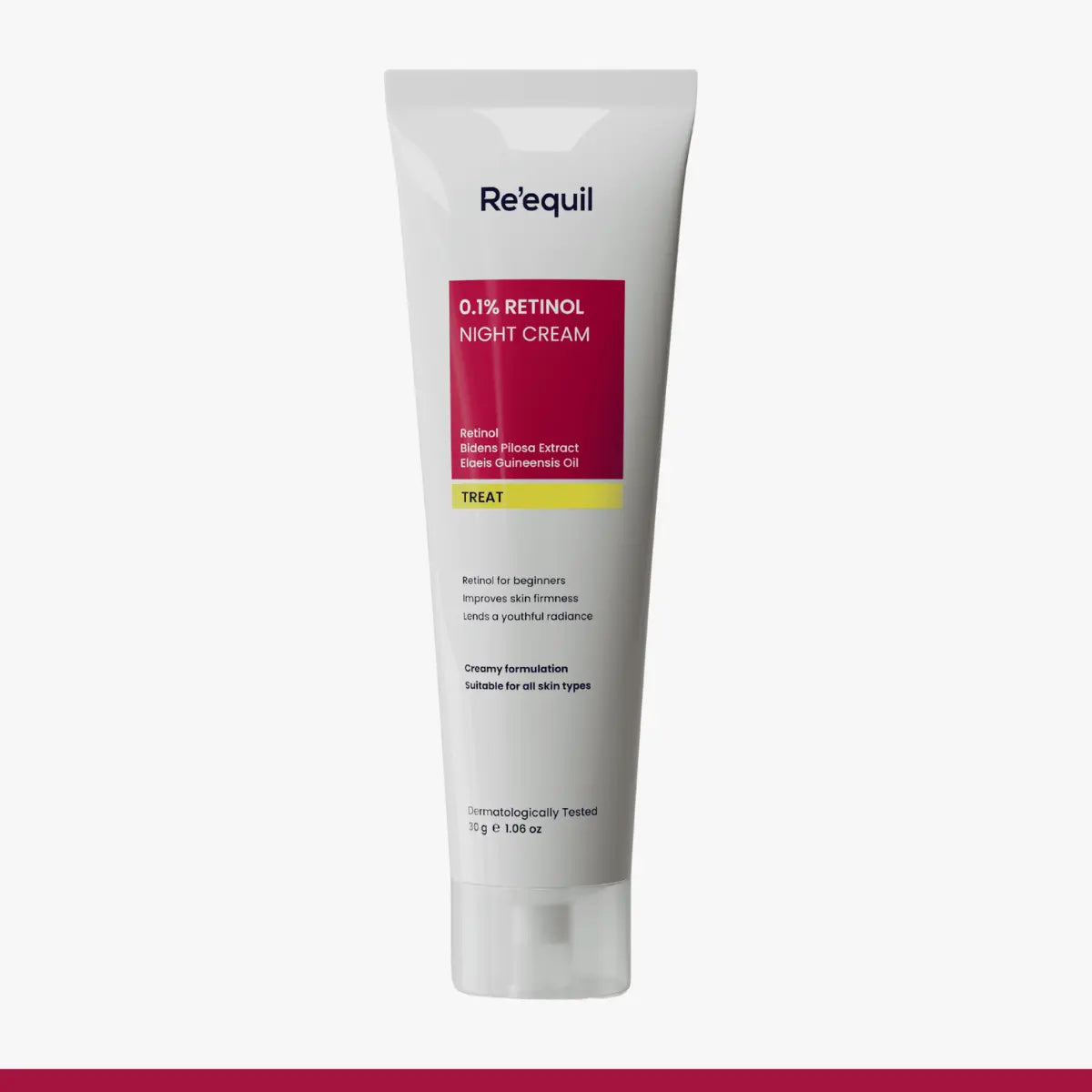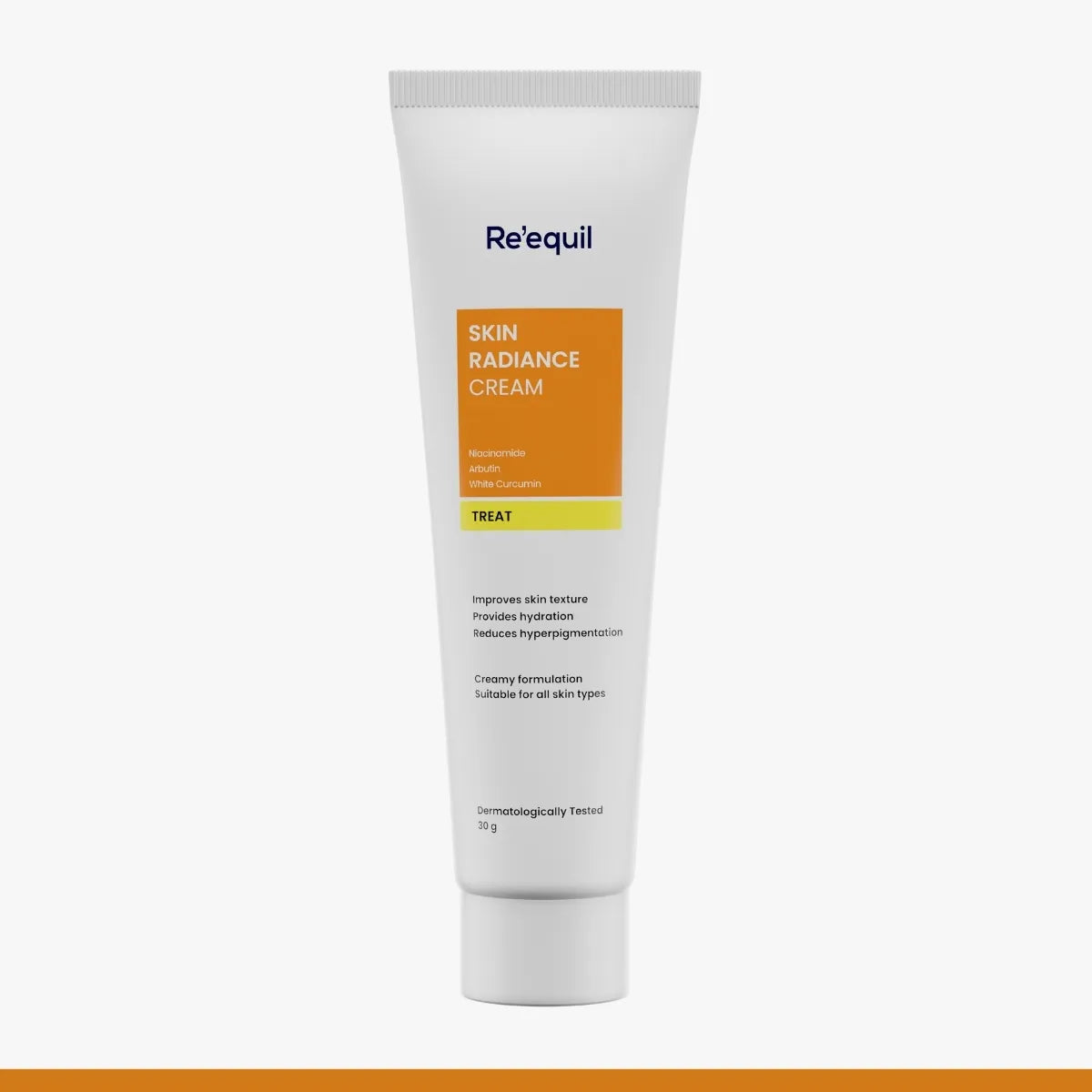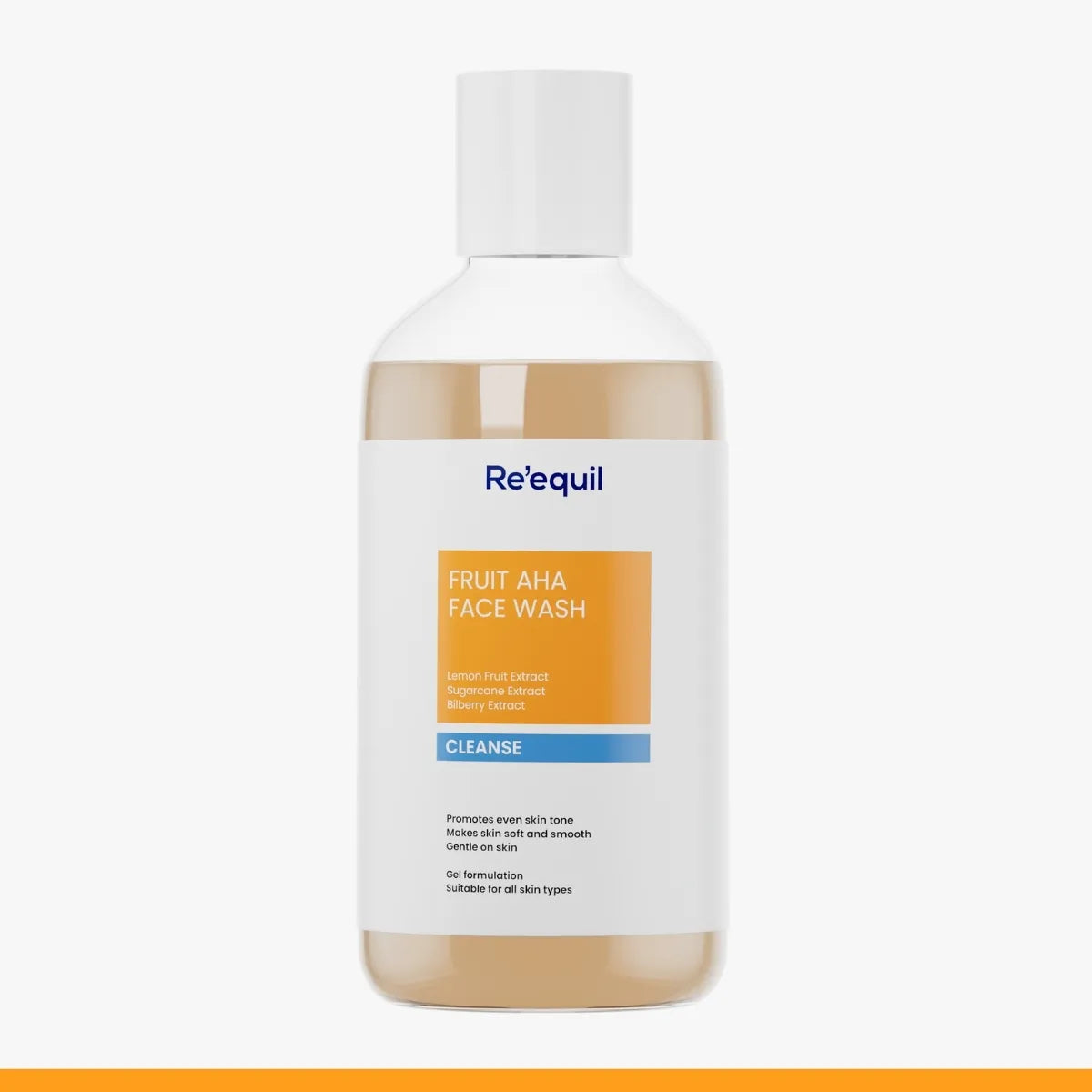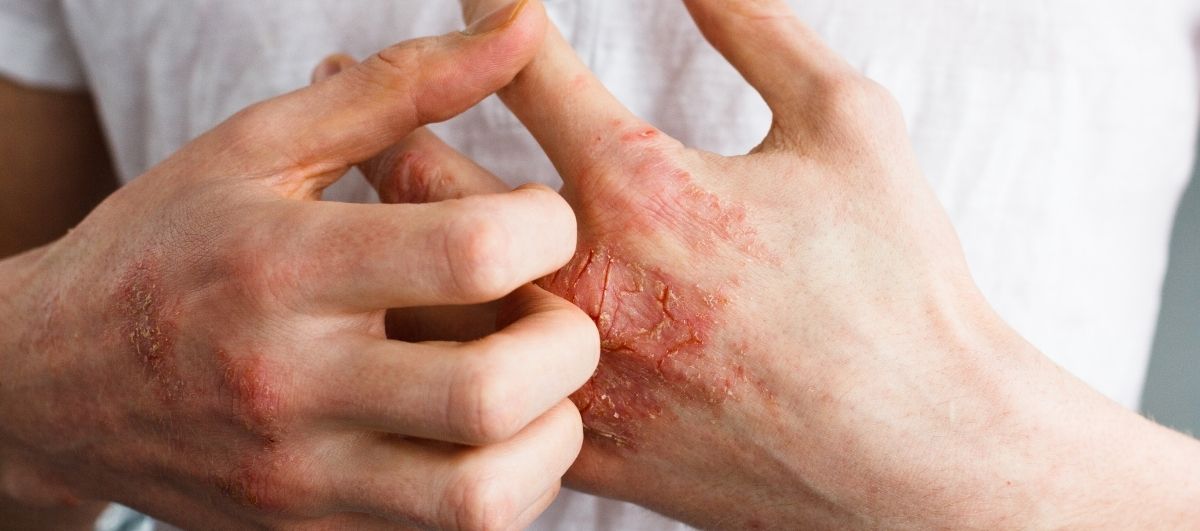There are a few setbacks of having dry or extra sensitive skin. Your skin is forever ready to break out into rashes or allergies. And then there is the risk of atopic dermatitis, a skin condition that can cause quite a bit of discomfort and embarrassment.
Marked by dry, scaly and inflamed skin, this is an eczema type that causes your skin to flare up and itch uncontrollably. The urge to itch and scratch is compelling, but that itself further aggravates the condition. Though this skin condition is more common in infants and children, it tends to persist even in your adulthood. And yes, you guessed it right, it has no known cure.
What you can do is control or manage atopic eczema and avoid the triggers religiously. Read on to know what triggers this type of eczema, and how to lessen the itching and discomfort with prescription medication, some lifestyle changes, and specially formulated gentle skincare products.
Who Gets Affected by Atopic Dermatitis?
This eczema type affects mostly infants and children below the age of five, but in most cases, it continues to affect people throughout their lives. Infants and children who get affected by this eczema tend to get rashes and rough, scaly skin that itches terribly. If you have had this skin condition as an infant, chances are it may resurface to trouble you in your adulthood.
Reports say that almost 10.7% of children in the United States suffer from this atopic dermatitis. And in adults, the prevalence is as high as 10.2%.
There is a genetic component in your probability of being affected by atopic eczema. If someone in your family has a history of asthma, or allergies, or Atopic Dermatitis, you are susceptible to it too.
Adults affected by this disease have scaly, rough, discoloured skin that is easily irritated. An allergic reaction can trigger it, or animal dander, or even cold, dry weather. We discuss the causes and the risk factors later in this article.
Eczema Types
Eczema, as a skin disease, has befuddled many researches, and doctors are still trying to properly understand the condition and the propensity of some people to get it. It is a very irritating skin condition that gives substantial discomfort to the people affected.
Atopic Dermatitis is the most severe and chronic type of eczema. The main symptom is dry, itchy skin that turns into red rash.
Eczema flare-ups have a vicious itch-scratch cycle. Scratching brings relief, but it leads to more inflammation and itching, and also other skin infections. All attempts need to be taken to not scratch the affected area.
Other types of eczema include:
- Hand eczema where the hands are mainly affected.
- Contact dermatitis that is triggered when your skin makes contact with certain substances like cosmetics or skin products
Often atopic eczema symptoms may be ignored in the beginning, leading to aggravation of the condition. Symptoms need to be diagnosed in time, and alleviation methods tried out to soothe the itching.
Since, atopic dermatitis treatment is unknown, moisturizing and soothing your skin with these scientifically developed products can give you relief. You can reduce the itching to a large extent with scientifically developed skincare solutions.
Re'equil, your trusted skincare brand, brings to you our Atorep product range that repairs the compromised skin barrier and provides relief from itch, flare-ups, redness and inflammation. The deep moisturising and skin nourishing products come in fragrance-free formulations, and suit all skin types, including the most sensitive ones. What’s more, these gentle skincare products can be used by adults and infants alike.
What Causes Eczema?
This skin condition is usually a result of the presence of too many inflammatory cells in the skin. People who tend to get atopic eczema usually have drier skin compared to normal people.
Their skin loses water quickly making the entry of irritants into the epidermis easier. The skin then breaks out into red, itchy rashes.
The triggers for Atopic Dermatitis are enumerated here:
- Environmental triggers like cold and dry weather
- Physical irritants like dust and smoke
- Allergens like pollen, dust, mould
- Sweat
- Hot baths
- Soaps, detergents and cleaners with chemicals
- Stress
- Genetic propensity or family history of asthma, allergies and hay fever
- Tobacco smoke
- Animal dander
- Fabrics like wool or scratchy material
- Perfumes, deodorants, and cosmetics
Any or all of the above irritants or triggers may set off this condition. Eczema skin problems are generally not triggered by food allergies, but the eczema may lead to you being allergic to certain food items like dairy, soy, nuts etc.
Since the moisture barrier of the person affected is defective, irritants and allergens lodge easily and trigger the immune system. The immune system responds with the itching, redness and inflammation, typical of this eczema skin disease.
And continuous scratching worsens the eczema, making the skin turn blistered and thick. An atopic barrier cream from Re’equil is what you need to use to calm and moisturize your inflamed skin. With Madecassoside and Ceramides, along with Shea Butter (the super-nourishing ingredients in this barrier protecting cream), this is a scientifically developed solution that offers soothing relief if used continuously for a fortnight at least.
How do we Identify Atopic Dermatitis (AD)?
In babies, this skin condition causes a lot of discomfort and rashes and results in crankiness and loss of sleep. Infants and children keep scratching the skin to stop the itching. The symptoms of AD are:
- In infants, rashes on the scalp and cheeks that often fill with pus
- In children, rashes in the creases of elbows, knees, neck, ankles or legs that result in itchy, scaly skin
- Adults with AD have extremely dry skin, hand eczema, eczema on the eyelids, visibly thickened, leathery skin
- Raw, bleeding skin
- Skin infections like yellow crusts or pus-filled bumps
- Related psychological problems of anxiety, depression, isolation and shame
Eczema dermatitis is extremely distressing to those who suffer from it and limits your activities and lifestyle to a large extent.
Make sure you soothe your inflamed skin with a targeted facial and body protective lotion. Ingredients that have been proven to reduce the inflammation and severity of atopic skin, and that offer optimum barrier protection, would be Colloidal Oatmeal, Borage oil and Coco Caprylate Caprate. Make sure you get these amazing skin soothing ingredients in a body lotion that is fragrance-free and gentle on your sensitive skin.
Is Atopic Dermatitis Curable?
Unfortunately, no. Researchers and doctors have been struggling to find a cure for this skin condition, but as yet, no permanent solution or medicine has been found. The most useful thing to do in the case of this eczema type is to avoid the triggers, and remove allergens from the vicinity.
Using fragrance free detergent and skincare products, and keeping your skin well moisturized can help in reducing skin dryness and thus decreasing the itching and redness.
The following can trigger atopic eczema and need to be avoided:
- Cigarette smoke, vehicle smoke
- Dust, pollen
- Animal dander
- If using certain soaps of detergents aggravates the eczema, stop their usage in your house.
- Do not take hot water baths for more than ten minutes. Use warm water and pat dry yourself with a soft towel.
- Stress and anxiety
Apply gentle cleansers during bathing and avoid using deodorants. Moisturize your skin immediately while it is still moist from a bath. Avoid the triggers and allergens as far as possible.
For people suffering from this eczema type, timely intervention in the form of topical medication, using fragrance-free skincare products, and moisturizing the skin intensely can help a lot.
Treatment Options for Atopic Dermatitis
You can modify your lifestyle and skincare habits to tackle and manage atopic eczema. The best preventive measure is to intensely moisturize the skin to improve its own barrier. Healthier skin tends to get inflamed less often. A stronger skin protects against allergens and irritants.
Bathing and moisturizing each day are the simplest way to hydrate your skin. It’s important to apply a moisturizer within minutes of bathing.
Your doctor may prescribe you anti-allergy medicines or antibiotics for controlling the eczema. Treatment options vary from over-the-counter skin care, prescription medication, and lifestyle changes.
Though the cure for this condition hasn’t been discovered yet, there are some drugs and ointments that provide relief. Some options for atopic dermatitis treatment are discussed here:
- Phototherapy. Specific wavelengths of Ultraviolet (UV) rays are used to stop inflammation. Risk factors include skin cancer and early skin aging.
- Oatmeal baths or bleach baths can reduce inflammation in children.
- In children, you can boost the effectiveness of a medication by using a wet wrap over the areas of skin where ointment has been applied.
Preventive Lifestyle Measures to tackle AD
Since atopic eczema cannot be cured completely, take all measures to relieve your skin from the itching and inflammation.
The following constructive steps have shown effectiveness in managing atopic dermatitis:
- Bathing in warm/tepid water for short duration (10 minutes) has been shown to be providing relief. Bathing washes away sweat, dust, pollens and pollutants that trigger AD. However, bathing also leads to skin drying, so immediately moisturize your skin after drying.
-
In atopic dermatitis, topical ingredients such as Madecassoside, Shea Butter, Ceramides, Colloidal Oatmeal, GLA (Borage Oil) are quite effective to repair damaged skin barrier and prevent Transepidermal Water Loss (TEWL).
- Use non-soap cleansers that have neutral or low pH level.
- The Indian Journal of Dermatology recommends cleansing the skin thoroughly, “but gently and carefully to get rid of crusts and bacterial contaminants in case of bacterial superinfection”.
- Wet-wrap therapy provides relief in persons with moderate to severe atopic dermatitis. It has been shown to decrease the severity of the condition and to reduce water loss.
- Make sure to use fragrance free skincare products and cosmetics.
- Avoid scratching as that inflames the skin, and worsens the eczema.
- A gentle, fragrance-free moisturizer “repairs the skin barrier and restores the lipid barrier's ability to attract, hold, and redistribute water”, according to a study cited by National Center for Biotechnology Information. The moisturizer needs to be applied at least twice daily, when skin is still moist after bath.
With a little bit of medical aid, some lifestyle changes and good skincare products, you can manage atopic dermatitis and lead your life as usual.
Make sure to check out the Re’equil website for the genuinely helpful Atorep range of products. These scientifically developed skincare lotions and creams are just what the doctor ordered, so to say! Dermatologically tested, SLS and paraben free, fragrance-free and gentle on sensitive skin, Re’equil products are with you all along in your fight against Atopic Dermatitis.





